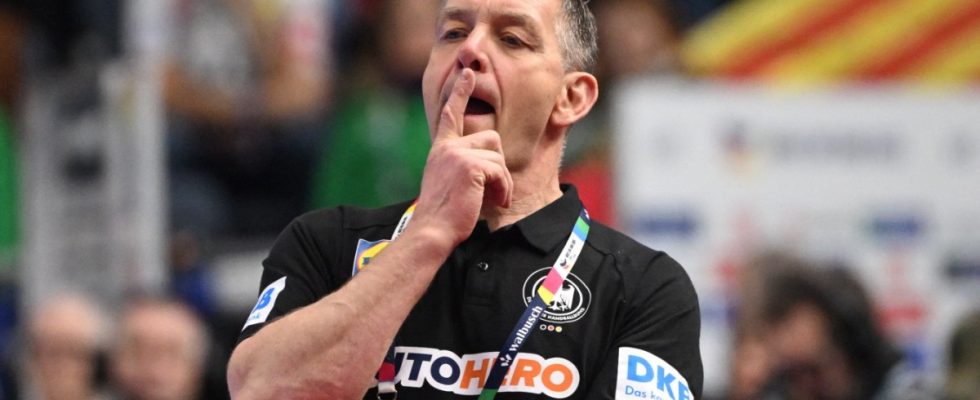The last answer from national coach Alfred Gislason at this European Handball Championship in Germany was tough: “I’ve had a rocky road to rebuild the team like this. But now things are looking really good.” He was asked whether his employer had already responded to an extension of his contract, which is known to be expiring in the summer. Nobody had spoken to him yet, said Gislason, “I still have a contract until after the Olympic qualification.”
Gislason not only took fourth place at the European Championships, he also led the selection of the German Handball Association (DHB) through the terrible Corona period with two major tournaments, he moderated crises, he was the face of German handball in difficult times.
Now, under his leadership, the declared goal at this home European Championship has been achieved; the 64-year-old has led the German team to the semi-finals. Anyone with a fair amount of handball sense could dream of a medal, but no longer count on one. The three top nations France, Denmark and Sweden have shown that they are one step ahead of the DHB selection. However, the gap to them has been further reduced after fifth place at the World Championships in Poland and Sweden a year ago. In preparation for the European Championships, there had been serious double-digit defeats against Sweden and Denmark, but now Germany was only three goals worse.
“It’s important for us to know that we can keep up with the big players at times,” said captain Johannes Golla, who at 26 is already one of the experienced players in the squad. Kai Häfner stated that there are reasons “that these three nations are always in the semi-finals of the major tournaments”.
No other team has “six people born in the 2000s or younger in their squad,” reminds the national coach
These selections have more quality, especially in breadth. Gislason analyzed that his team is still making too many technical mistakes, is unfocused when it comes to exploiting big chances and is afraid of taking risks in fast-paced play. All of this has of course been recognized and will gradually improve in the future, especially since the young team has great development potential. No competitor has “six people born in the 2000s or younger in their squad,” explained the Bundesrainer. And it is precisely these challenges that are essential in order to learn from the mistakes against the top teams: “I think this tournament has brought the team forward again. I am proud of the boys.”
The DHB selection around captain Johannes Golla (left) tried a lot against Sweden – but missed third place at the home European Championships.
(Photo: Lars Baron/Getty Images)
However, there will hardly be any time to gather strength; the Bundesliga will continue next Thursday. And the national team faces the next task in mid-March: qualifying for the Olympic Games in Paris. Six teams have already qualified, including hosts France and world champions Denmark – so third place at the European Championships would have been enough for a ticket to Paris, the Swedes have solved that.
Six places are still available, which will be played in three tournaments with four participants each. As fifth place in the World Cup, the DHB has reserved the right to apply as host, the prospects are good, the game would then be played in Hanover. The opponents will be two good friends: Croatia and Austria, as well as Algeria – the top two in each group will take part in the Olympics.
Gislason thinks it’s a feasible task. Even though they lost 24:30 against the Croatians in the last skin round game and the DHB selection couldn’t go beyond a flattering 22:22 draw against their neighbors from the Alpine country. The national coach explains that it was a pitch-black day against Austria; against Croatia he rested the regulars because they had already reached the quarter-finals. Neither will happen anymore.
As things currently stand, this is the last tournament under his responsibility, after which his contract ends. “I have signaled several times that I want to stay longer,” said Alfred Gislason before leaving Cologne, so far without any reaction from the association. And now? Will he continue to work, analyze, sift, prepare: “I see it very loosely.”

